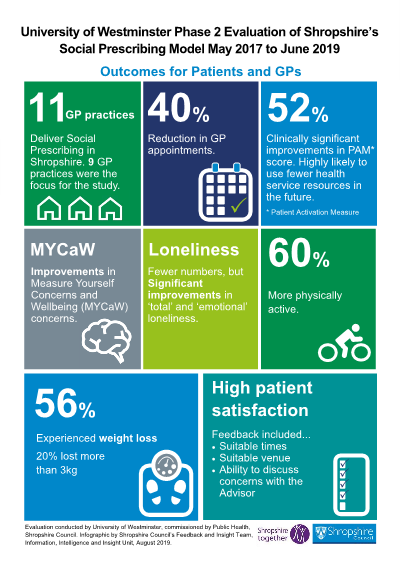Shropshire Libraries, in partnership with public health deliver a myriad of social prescribing opportunities across the county, including 150 reading groups taking place in people’s homes, in libraries and sometimes even pubs.
Libraries are the heart of many social prescribing programmes across the country, providing a neutral, free, friendly warm and non-judgemental environment.
A successful pilot project with Oswestry Library in 2017 led to a roll out of a social prescribing intervention offered by Shropshire Libraries to other areas of the county in 2018. Referrals come through a variety of organisations, including GP practices, to a social prescribing lead who develops a personalised programme with the client. If the opportunities offered by Shropshire Libraries appeal, then the client can go along for a tailor-made induction, where a member of staff will explain a variety of resources, or social groups on offer.
People experiencing a variety of issues, such as anxiety, depression and insomnia can be referred to the health zone, to Reading Well books on good mental health or to writers groups and adult reading groups where people listen to poetry or extracts from books to create a social environment without expectation of interaction. The health zones have a range of self-help books categorised into ages and activities, including Reading Well books on prescription for dementia as well as for other long-term conditions. These provide information and advice about the condition, whether it is dementia and ageing or other long-term conditions, post-diagnosis support, practical advice for carers, personal accounts and suggestions for therapeutic activities.
“It depends on the level of interaction that people want to take, we want people to feel safe, part of the community and connected” says Mirka Duxberry, library development manager for Shropshire. “We have learning events, learning at lunchtime…friends’ groups and knit and natter.”

